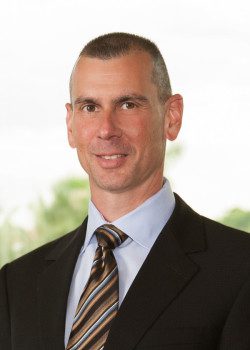October 17, 2013
ShareFirm Principal Partner Heath Eskalyo Featured in the South Florida Legal Guide
Trends in Labor Law – Shifting the Balance Between Employers and Employees
Workers’ Compensation Issues
 |
| Heath Eskalyo |
From his defense perspective, Heath S. Eskalyo, principal partner and CFO at Kelley Kronenberg in Fort Lauderdale, says many plaintiffs’ attorneys look at workers’ compensation cases from the perspective of fees, as well as their clients’ injuries. “The trend seems to be to look at the case and see if there are other areas of litigation,” he said. “Overall, the volume of workers’ compensation cases seems to be decreasing as plaintiffs’ attorneys find other avenues to pursue.”
Over the last few years, the Florida Legislature has changed its methods of calculating attorney’s fees in workers’ compensation cases, and now a percentage of the benefits obtained go to the attorney, rather than basing the fee on an hourly rate.” If the case involves a minor surgery that costs $5,000, for instance, the attorney would get a $1,000 fee. The plaintiff’s bar is challenging the constitutionality of those fee calculations.
Meanwhile, many plaintiffs’ attorneys are trying to turn workers’ compensation claims into larger employment-related cases, adds Eskalyo. “An attorney might take preliminary discovery on workers’ compensation claim and look at the wages and hours issues to see if the client was paid for overtime work,” he said.
An employer with workers’ compensation insurance is usually immune from pain and suffering damages, based on state law. But if an on-the-job accident results in serious body injury or death, the plaintiff may try to show that the employer had knowledge of a defect, such as malfunctioning equipment, and then hid the defect, said Eskalyo. “If the plaintiff can do that, the case becomes a circuit court action with no cap on damages.”
While the volume of workers’ compensation cases may be declining, the settlements are getting larger, Eskalyo said. That’s because the federal Medicaid program is mandating that money be set aside to cover the projected future costs of the worker’s medical care. “After the expert calculations are done, Medicare will review the reports and set a certain dollar amount for that set-aside, which needs to be figured into the overall settlement,” Eskalyo said. “If you don’t protect Medicare’s interest, the agency can come after the employer, the carrier and both attorneys in the case.”
In workers’ compensation cases, Eskalyo advises employers to be an active participant in the claims negotiation and litigation process. “Don’t rely on your carrier to know your company in the same way you do,” he said. “Employers should look at how else the company might be attacked and select a defense counsel that can look at the broader picture.”
Read the entire article here: http://www.sflegalguide.com/FE2013LE.html


